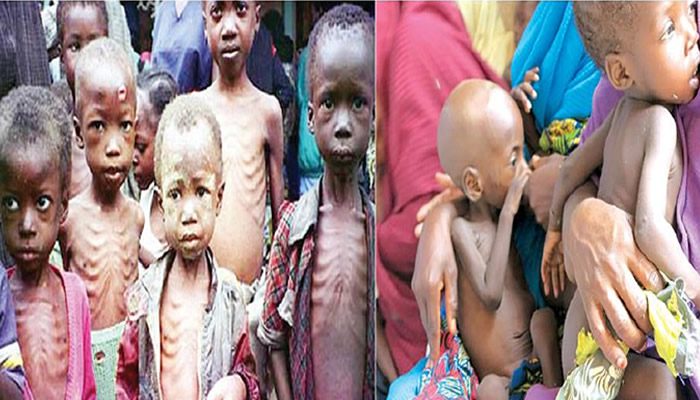The Presidency in Nigeria is asking for a collaborative approach to tackle malnutrition, stating that improved nutrition is important for the country's development and economic growth.
Ibrahim Hadejia, Deputy Chief of Staff to the President, called for this approach during a press conference before a high-level dialogue with faith leaders on nutrition, set for April 23, 2024, in Abuja.
Hadejia emphasized the need for teamwork involving government, religious institutions, traditional authorities, and development partners.
He said the government cannot ignore nutrition because it directly affects human capital development, economic productivity, and the overall direction of the country.
The former Deputy Governor of Jigawa state praised the World Bank-funded Accelerating Nutrition Results in Nigeria Project for its innovative use of faith leaders to promote positive behavioral change and sustainable nutrition practices.
“President Bola Ahmed Tinubu is dedicated to promoting sustainable nutrition activities in our nation.
The event will bring together state governors, ministers, development partners, and leaders of faith and traditional institutions to align efforts with President Bola Ahmed Tinubu’s Renewed Hope Agenda,” he said.
Hadejia also mentioned that the high-level dialogue between the National Council on Nutrition and faith leaders will provide a platform for strategic discussions and commitments towards sustainable nutrition investments for all Nigerians.
Dr. Ojuolape Solanke, National Project Manager of ANRiN Project, noted the government's focus on malnutrition and its impact on growth, development, and economic prosperity.
Solanke said, “The first 1,000 days of a child’s life are crucial, and missing this window will result in the loss of a significant population vital for economic growth,” affirming that “the Vice President, as the Chairman of the National Council on Nutrition, is committed to keeping the issue of malnutrition on the agenda.”
Dr. Zainab Muhammad-Idris, Kaduna Programme Manager for ANRiN, emphasized the project’s implementation at the local community level where nutrition services are accessed.
“Faith leaders are crucial in making sure the right messages reach people. We work closely with them to promote better nutrition practices, even when there is an abundance of food,” she said.
Babafunke Fagbemi, Executive Director of the Center for Communication and Social Impact, added that faith leaders play an important role in making efforts to address malnutrition more formal by using their influence.
“We have identified religious, gender, and social norms that hinder the adoption of best practices.
“Faith leaders have reached more than 6 million members of their congregations with messages that help improve nutrition in their communities,” Fagbemi said.
The one-day summit is arranged by the Office of the Vice President in conjunction with the National Council on Nutrition and the Accelerating Nutrition Results in Nigeria Project.
The high-level discussion with the theme, ‘Faith Leaders as Catalysts for Enhanced Human Capital Through Nutrition,’ aims to establish lasting ways to enhance Maternal, Infant, and Young Child Nutrition practices in Nigeria.
Vice President Kashim Shettima, who heads the National Council on Nutrition, will present the Keynote Speech.



